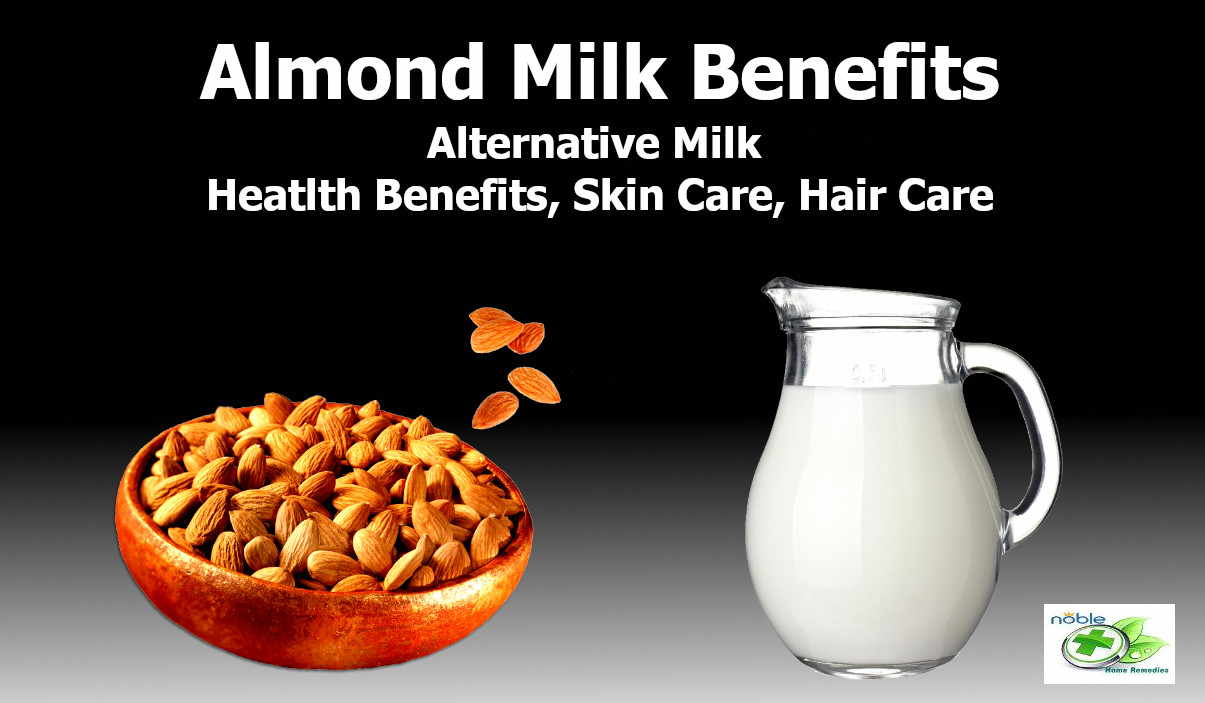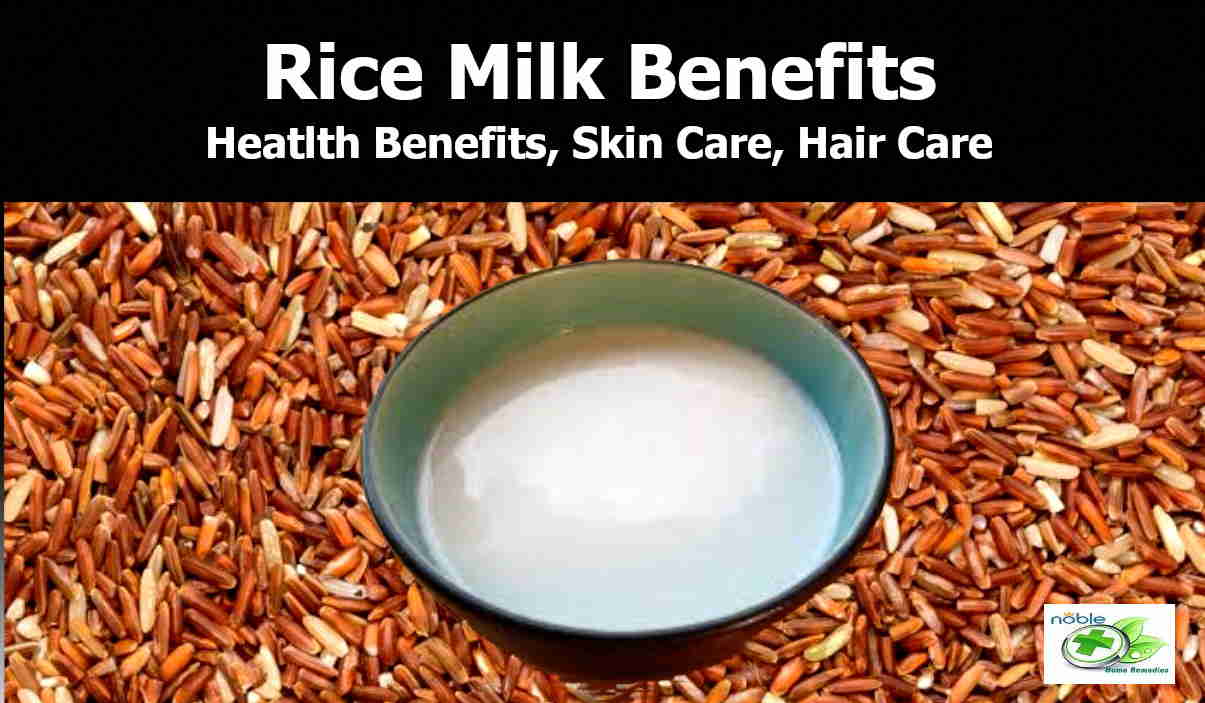Soy milk is another alternative to plant-based milk such as almond milk or rice milk. Soy milk benefits are huge and it competes with almond milk benefits and rice milk benefits.
Infants to adults are looking for alternative milk solutions to dairy milk. Alternative milk is required for the reasons for those who are:
- Intolerance of dairy milk
- Vegans do not eat or drink any form of animal products
- Wanting to lose weight
- Diabetes patients opting for alternative milk to check on sugar levels
- Nutrition facts that suit certain individuals
- Non-availability of dairy products in the living area
Table of Contents
Is it safe to drink Soy Milk?
Yes, it is safe to drink soy milk in moderation. Hear what the dietitian Kathy McManus, director of the Department of Nutrition at Harvard-affiliated Brigham and Women’s Hospital says. She says that soy milk is rich in polyunsaturated fats, fiber, vitamins, and minerals, and low in saturated fat. Natural soy products are the best for consumption in moderation.
One main thing that goes against soy milk is that it contains estrogen-like chemicals. High doses may lead to health issues. So, refrain from intake of soy isoflavone supplements. Also, the foods are made with textured vegetable protein and soy protein isolate.
The dietitian McManus says it is fine to eat whole soy foods such as soy milk, edamame, and tofu. But in moderation many times a week.
What is Soy Milk?
Yes, you have guessed it right. Soy milk is plant-based milk made from soybeans.
Manufacturers do fortify soy milk with vitamins and minerals. Just like almond milk. Added minerals and vitamins are vitamin D and calcium respectively. Certain brands enrich soy milk with omega-3 fatty acids.
Apart from the enrichment, soy milk contains anti-inflammatory, antioxidant, and cardioprotective effects properties. Says the plant-based diet enthusiast and dietitian Julieanna Hever, RD. So, we have good reasons for choosing soy milk. Read on for more details.
The Potential Health Benefits of Soy Milk
Is soy milk good for you is the question asked by many people. The answer is Yes, soy milk is good for you.
Later in this article, we also talk about the side effects of drinking soy milk. Read on and then decide for yourself how to go about drinking soy milk. Get doctors to advise if you have any chronic health conditions before giving an attempt.
Let us now go with the health benefits of soy milk:
1. Is Soy Milk Good for Weight Loss
You must be wondering how soy milk can contribute to your weight loss.
The phytosterol substance in soy milk blocks fat absorption. Further, soy milk contains fat-burning vitamins that are vitamin B12 and riboflavin. These vitamins increase metabolism and energy. Resulting in the efficiency of burning off fat from your body.
For this good reason, soy milk makes a great weight-loss drink to include in your daily diet. This is one of the best ways to kick off your weight loss efforts. Check here some of the good weight loss drinks recipes that you can try.
2. Cardioprotective – Reduces Risks of CVD and CHD
Soy milk protein is of high quality and complete protein. It has all the essential amino acids that your body cannot produce. Amino acids have the ability to prevent several health disorders.
For vegetarians and vegans, obtaining the required protein may be a challenge. Among all plant-based proteins, soy has high-quality protein for human consumption.
Certain studies complement soy protein for reducing Cardiovascular disease (CVD) risks. It is beyond lowering cholesterol levels in the blood.
Additionally, isoflavones substance is high in soy compared to other plant-based foods. A cup of soy milk (250ml) contains about 25g of Isoflavones. Isoflavones provide protection against age-related diseases including cardiovascular disease.
A PubMed study points out the hypotensive effect of soy protein. It reduces congenital heart disease (CHD) disease by 6 %.
3. Controls Blood Pressure
In general, high protein intake means it helps to lower blood pressure. That is why soy protein is hypotensive.
A study was carried out with 40 men and women taking 500ml of soy milk twice every day for three months. The study reveals that the intake of soy milk significantly lowers blood pressure. It is more than cow’s milk. See the figure below published by Oxford Academic on blood pressure comparing soy milk and cow milk.

4. Soy milk Improves Endothelial Functions
Endothelial is a thin membrane that forms inside blood vessels and the heart. Also, endothelial prevents blood clotting, supports vascular relaxation, and improves immune function.
According to a study that soybean isoflavones improve endothelial functions in postmenopausal women.
5. Soy Milk Improves Arterial Stiffness in Postmenopausal Women
Arterial Stiffness is related to where the artery wall is not able to function to its potential.
Soy milk isoflavones improve arterial stiffness in postmenopausal women.
6. Bone Health Through Soy Milk – Prevents Osteoporosis
The estrogen effects of isoflavones in soy milk provide skeletal benefits. This is specifically important for women following menopause. Women following their menopause tend to lose a substantial amount of bone mass. Due to the loss of estrogen levels in the body. It leads to the weakening of the bones and ends with a bone fracture.
A study in 2017 supports that soy helps to prevent bone mass loss. Thereby reducing the risks of bone fractures associated with osteoporosis.
7. Soy Milk Reduces Breast Cancer Risks
The occurrence of breast cancer is much lower in countries where high soy or soy milk is consumed. This effect is attributed to the chemopreventive effects of soy isoflavones.
A PubMed article says higher consumption of soy milk has a ⅓ reduction in breast cancer risks. Also, women eating soy food have a significant reduction in death and recurrence.
Another study shows a lifelong soy-rich food diet reduces the risks of breast cancer in women.
Advice from American Cancer Society Expert Marji McCullough, ScD, RD. The Strategic Director of Nutritional Epidemiology for the American Cancer Society. She says that soy foods are healthy and safe to eat or drink. But, not in favor of taking soy supplements that have high isoflavone concentrations.
8. Soy Milk Benefits in Kidney Functions
The link between soy milk and renal benefits has significant importance. This is because of the increasing number of diabetes patients around the world.
Soy milk protein is the key substance that helps to reduce stress on kidney functions. Drinking soy milk decreases the risk of developing renal diseases. Particularly in diabetes patients.
Soy milk has high-quality protein compared to animal-based proteins. So, it is advisable to replace animal-based protein with soy-based protein in your diet. Doing so gets you kidney function-related benefits. A study also establishes a good connection between soy and renoprotection.
9. Drinking Soy Milk Reduces Menopausal Symptoms
Women who drink soy milk may prevent or ease existing menopause-related hot splashes. It is the soy milk isoflavones that make a good effect on women.
Women may opt for soy isoflavone supplements to combat hot splashes. This is to be sure enough soybean isoflavone is taken to reduce menopausal symptoms.
10. Protein’s Role in Obesity
The high-quality soy milk protein helps in reducing the accumulation of body fat. It also reduces cholesterol levels and improves insulin resistance. Thus, soy protein is considered a hallmark of human obesity.
A Semantic Scholar study describes the benefits of soy protein against human obesity.
Consumption of soy protein affects satiety. Reduces excess body fat in obese animals and humans.
Studies further establish that soy milk is one of the greatest weight loss drinks that you can bank on.
11. Soy milk is an antidepressant
Soy milk helps in boosting your mood. This is because of the vitamin B6 and vitamin B complex in it. The rich magnesium in soy milk releases the serotonin hormone. It works as an antidepressant on your mind.
12. Is Soy Milk Good for Diabetics?
According to the nutrition scientists at the University of Massachusetts Amherst, the bioactive components of soy food are useful for Diabetics. The bioactive component is nothing but the isoflavones in soy milk.
Drinking soy milk reduces blood glucose and improves glucose tolerance, in diabetes patients.
13. Is Soy Milk Good for Babies and Toddlers?
Well, the answer is Yes and No.
The infant’s only food is always milk. So, the infant diet is 100% milk. The best milk for infants is none other than breast milk.
The infants fed with soy milk will have high exposure to the phytoestrogens of soy. Phytoestrogens produce estrogen-like effects in the body. Making infants vulnerable to similar effects of estrogens. Leading to health issues.
Therefore, soy milk may be ideal for babies over one year of age who are intolerant to lactose. Meaning that babies or toddlers are intolerant or allergic to cow’s milk.
Soy milk as a single source of nourishment does not have all the vital nutrients for a child’s growth, That is one of the main reasons why to avoid feeding infants soy milk under one year.
For example, soy milk is low in calcium. As you know calcium is vital for bones and teeth development. If you are feeding the child only soy milk then you need to add other sources of calcium to the diet.
Be aware, that some infants are allergic to soy milk. In which case completely avoid feeding them with soy milk.
A simple guideline for infants is:
- Never feed infants soy milk under the age of one
- Be aware, that soy milk lacks the nutrition needed for growth.
- Remember soy milk can be only an addition to breast milk or cow’s milk in order to get the soy milk benefits.
- Soy milk should not be a replacement for breast for cow’s milk
The best is to seek advice from your doctor about adding soy milk to the infant’s diet. Soy milk intake has to be in moderation and in the right quantities.
The high protein, iron, and other vitamins in soy milk are very useful for a child’s growth.
Soy Milk Benefits for Females
Interestingly soy milk is contributing a lot more health benefits to females. Those who take in moderate quantities of soy foods including soy milk in their diet benefit more. Here is the list of benefits females gain from soy milk including that of men:
- Protects against postmenopausal syndromes
- Reduces the menopausal hot flash frequency and severity
- Helps to lose weight
- Strengthens blood vessels
- Controls blood pressure
- Improves endothelial functions
- Soy milk improves arterial stiffness
- Prevents osteoporosis
- Lowers risk of developing breast cancer
- Reduced rate of mortality among women with breast cancer
- Lowers risk of heart disease
- Soy protein reduces the arterial low-density lipoprotein (LDL) concentration
- Protect mental health
- Improve immunity
- Cures skin problems
- Soy milk is an antidepressant
Side Effects from Soy Milk
Impact on thyroid functions: The phytoestrogen component of soy milk behaves like an estrogen hormone. Too much phytoestrogen intake may lead to thyroid problems. A study in 2018 on 40 people says 66mg of soy phytoestrogen a day may pose a risk of impaired thyroid functions.
Not suitable for pregnant mothers: High intake of soy milk may harm the development of the baby. Being moderate is the key. If you wish to take soy just be sure to take whole foods like soy milk.
Soy Milk Nutritional Profile & Nutrition Facts
Nutrition soy milk profile and facts as per the U.S. Department of Agriculture (USDA), Food Data Central:
| Nutrition | Amount |
|---|---|
| Energy | 105.00 kcal |
| Protein | 6.34 g |
| Water | 220.00 g |
| Total lipid (fat) | 3.59 g |
| Carbohydrate | 12.00 g |
| Fiber, total dietary | 0.49 g |
| Sugars, total including NLEA | 8.91 g |
| Calcium, Ca | 300.00 mg |
| Iron, Fe | 1.02 mg |
| Magnesium, Mg | 36.6 mg |
| Phosphorus, P | 105.00 mg |
| Potassium, K | 298.00 mg |
| and much more micronutrients |
How to Make Soy Milk at Home and Taste Better
Making soy milk at home is very easy. Sometimes, home recipes are the best because you know the ingredients. You can make sure what you make is high in quality.
It is always better to make things at home. That is easier with simple ingredients, and simple methods, and not time-consuming. Let us now look at how to make soy milk at home at your ease:
Ingredients:
- 10 ounces of soybeans
- 12 cups of water
- Pinch of salt
- Sweetener or Sugar (optional)
Instructions:
- Rinse the soybeans in water in a bowl thoroughly.
- Refill the bowl with fresh water again and let the soybeans submerge fully
- Soak the soybean in the bowl overnight
- Again, rinse the soaked soybeans a couple of times in the freshwater
- Transfer the soybeans to a saucepan that can hold up to 12 cups (240ml a cup) of water
- Add 12 cups of water to the saucepan with soybeans
- Place the saucepan on a stove with high heat and bring it to the boiling
- Continue to cook for another 10 minutes at a medium heat
- Remove the saucepan from the stove and let it cool down a little
- Now move the cooked soybeans with water into a blender
- Blend it till it becomes a completely smooth
- Transfer the smoothie back to the saucepan from the blender
- Simmer it on a stove for about 40 minutes
- Strain the soymilk using a fine cheesecloth
- Add sugar or sweetener to make soy milk taste better
Takeaway
Soy milk’s benefits are immense. Especially soy milk benefits for females are much more compared to men.
Soy milk is alternative milk to cow’s milk. It has its own health benefits compared to almond milk or rice milk. This is mainly because of the high-quality protein and Isoflavones substance.
Drinking soy milk should only be in moderation to ensure maximum health benefits.
Soy milk benefits for females are more remarkable.
Soy milk is not for babies under one year old. For toddlers and above soy milk can be given in moderation. Soy milk should not be used as a replacement for breast milk or cow’s milk. It is best only when used as an add-on to breast milk.
11 Sources
Noble Home Remedies relies on peer-reviewed studies, academic research institutions, and medical associations for accuracy and reliability while avoiding tertiary references. Our editorial policy provides more information about how we ensure our content is accurate and up-to-date.
- Soy and Health – https://www.pcrm.org/good-nutrition/nutrition-information/soy-and-health
- Confused about eating soy? – https://www.health.harvard.edu/staying-healthy/confused-about-eating-soy
- Soy and Health Update: Evaluation of the Clinical and Epidemiologic Literature – https://www.ncbi.nlm.nih.gov/pmc/articles/PMC5188409/
- Soy milk consumption and blood pressure among type 2 diabetic patients with nephropathy – https://www.ncbi.nlm.nih.gov/pubmed/23498346
- Dietary Isoflavone Intake and All-Cause Mortality in Breast Cancer Survivors: the Breast Cancer Family Registry – https://www.ncbi.nlm.nih.gov/pmc/articles/PMC5444962/
- Soy Protein and Cardiovascular Disease – https://www.ahajournals.org/doi/full/10.1161/01.cir.102.20.2555
- Soy protein reduces the arterial low-density lipoprotein (LDL) concentration and delivery of LDL cholesterol to the arteries of diabetic and nondiabetic male cynomolgus monkeys – https://www.ncbi.nlm.nih.gov/pubmed/11016902
- Soy and Health Update: Evaluation of the Clinical and Epidemiologic Literature – https://www.ncbi.nlm.nih.gov/pmc/articles/PMC5188409/
- Soy, Soy Foods, and Their Role in Vegetarian Diets – https://www.ncbi.nlm.nih.gov/pmc/articles/PMC5793271/
- The association of soy food consumption with the risk of subtype of breast cancers defined by hormone receptor and HER2 status – https://www.ncbi.nlm.nih.gov/pubmed/27038352/
- Soy foods, isoflavones, and the health of postmenopausal women- –https://academic.oup.com/ajcn/article/100/suppl_1/423S/4576564






